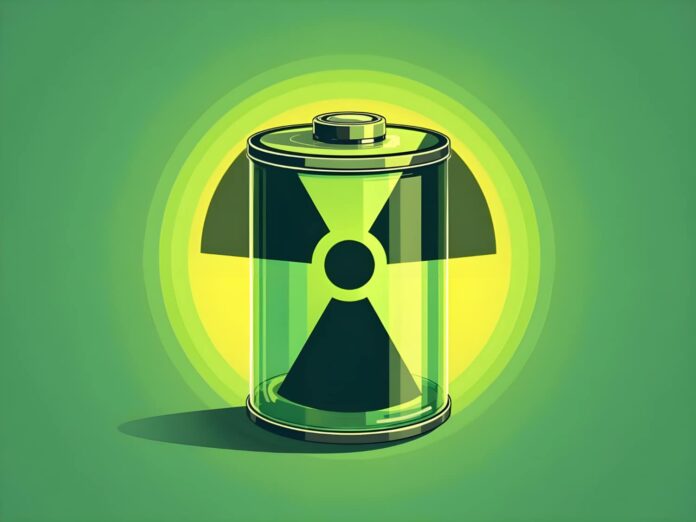
By Amit Malewar 26 Mar, 2025
Collected at: https://www.techexplorist.com/radiocarbon-powered-nuclear-batteries/98239/
From dying cell phones to electric vehicles running out of charge, the limitations of lithium-ion (Li-ion) batteries have become an everyday frustration. While these rechargeable batteries last for hours or days, their performance deteriorates over time, requiring frequent recharging.
Now, researchers are exploring an extraordinary solution: radiocarbon-powered nuclear batteries that could last decades—or even longer—without recharge.
Su-Il In is a Daegu Gyeongbuk Institute of Science & Technology professor. His work addresses the growing demand for durable batteries, especially as data centers, drones, and remote-sensing devices push Li-ion batteries to their limits.
“The performance of Li-ion batteries is almost saturated,” explains In.
Unlike Li-ion batteries, nuclear batteries harness energy from radioactive materials. These include beta particles, a safer form of radiation that can be shielded with thin aluminum sheets, making them ideal for compact, secure applications.
In and his team have developed a prototype betavoltaic battery using carbon-14, a radioactive isotope that emits only beta rays. Radiocarbon is inexpensive and easy to recycle, but it also degrades at a snail’s pace, potentially powering devices for millennia.
The team’s innovative battery design relies on a titanium dioxide-based semiconductor enhanced with a ruthenium-based dye treated with citric acid. When beta rays strike the dye, this setup triggers a “cascade” of electron transfers—dubbed an electron avalanche—efficiently generating electricity.

They further improved the battery’s energy output by placing radiocarbon in both electrodes, which increased beta rays while minimizing energy loss.
Testing showed that their new dual-site radiocarbon design boosted energy conversion efficiency from 0.48% to 2.86%. While less powerful than traditional Li-ion batteries, this prototype has immense potential for long-term applications. Imagine pacemakers lasting a lifetime without surgical replacements, or ultra-sensitive quantum sensors unlocking discoveries.
The implications of this technology go beyond medicine and research. In envisions a world where nuclear energy isn’t confined to remote power plants but safely integrated into devices “the size of a finger.” With further optimization, these batteries could transform everything from self-driving cars to space technologies.
As environmental concerns grow, nuclear energy is shedding its stigma and emerging as a sustainable, efficient solution. In’s work, supported by Korea’s National Research Foundation and other institutions, marks a significant step toward greener energy alternatives—and could redefine the future of power.
In recently unveiled groundbreaking results at the American Chemical Society’s Spring 2025 meeting.

Leave a Reply